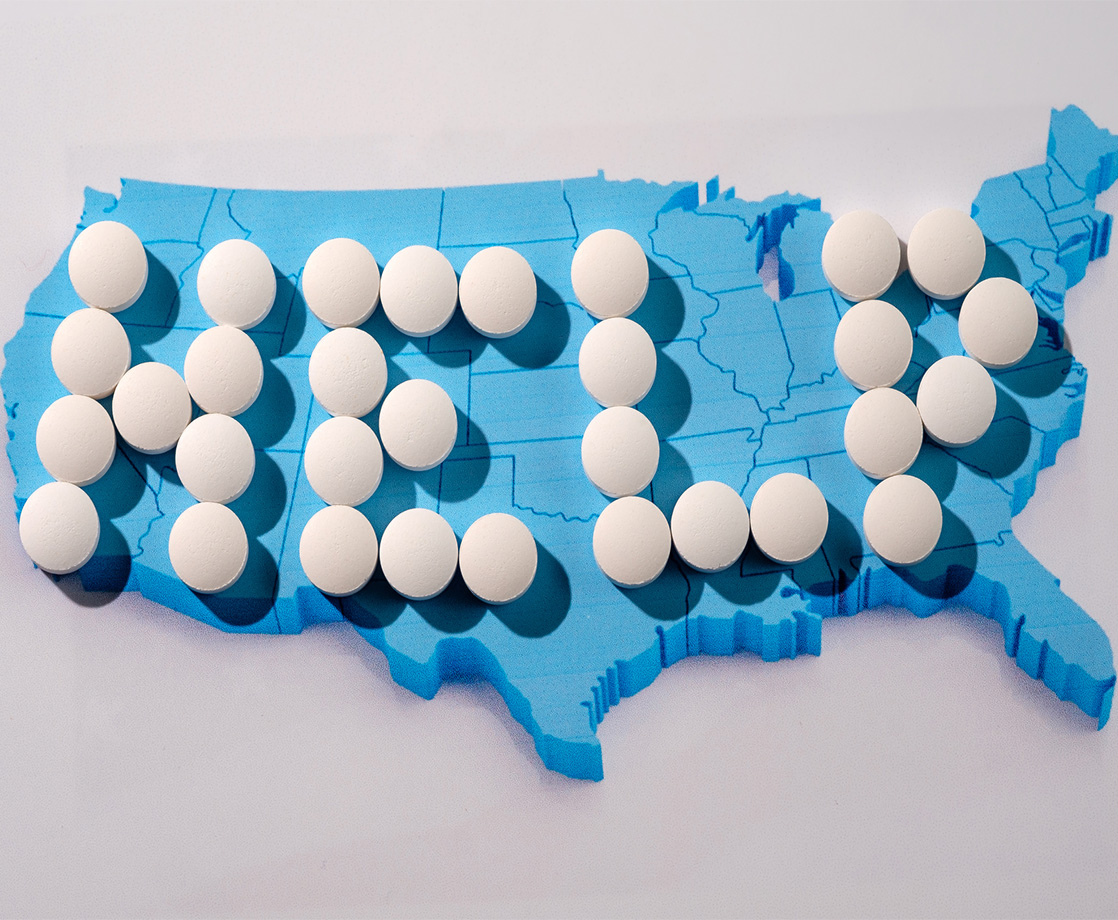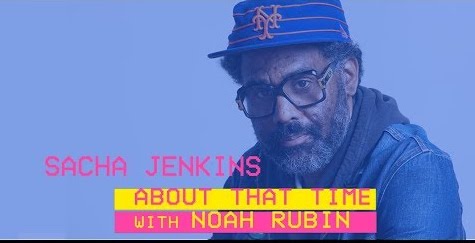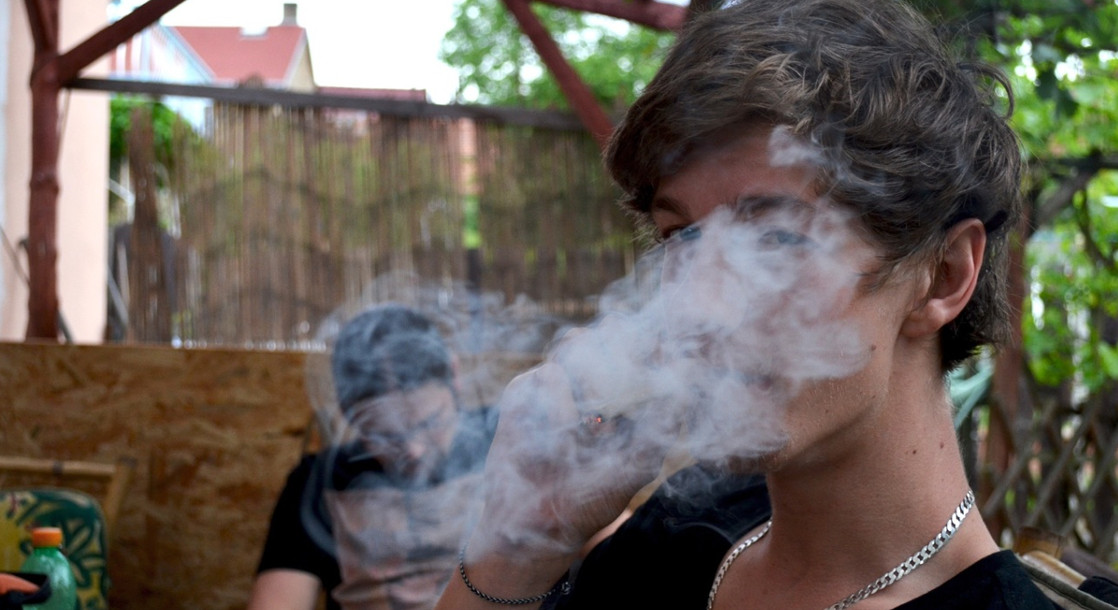It's been three months since President Donald Trump stood in front of the nation and declared America's opioid epidemic a public health emergency, but not much has changed since. Now, one year and thousands of opioid-related deaths into Trump's presidency, states, cities, and local municipalities are taking matters into their own hands and turning to cannabis reform and evidence-based health practices to try and save their communities from the grip of pharmaceutical-fueled death.
In the last months of 2017, health experts, addiction specialists, politicians and Trump's own opioid commission alike echoed the same request, calling for the president to free up heaps of federal funding to combat the crisis as a national emergency. Instead, Trump allocated cash to an ad campaign, with no additional funding for addiction-related healthcare, counseling, or evidence-based programs.
In a new interview with CNN, Congressman Patrick Kennedy, one of the opioid commission's six members, said that Trump and Republicans in Congress have turned the commission's work into a "charade" and a "scam."
"This and the administration's other efforts to address the epidemic are tantamount to reshuffling chairs on the Titanic," Rep. Kennedy told CNN. "The emergency declaration has accomplished little because there's no funding behind it. You can't expect to stem the tide of a public health crisis that is claiming over 64,000 lives per year without putting your money where your mouth is."
But while the president may be content echoing Nancy Reagan's famously failed "Just Say No" tagline as national policy, local politicians and the American public aren't ready to give up on fighting a drug crisis that's hurting their loved ones and neighbors.
In a radical move to increase user safety and usher more local addicts into treatment, officials in Philadelphia announced on Tuesday that they would seek to establish medically-staffed safe-injection sites across the city.
By offering drug users medical guidance, free resources like clean needles, and an on-staff employee trained to treat overdoses, the city hopes to decrease the number of opioid-related deaths while exposing more people to treatment options.
"These sites serve as sites to bring people into drug treatment," Philadelphia city health commissioner Dr. Thomas Farley told NBC10 News. "We don't see this as simply a site for supervised injection."
The proposed health-first sites have already come under fire from some local politicians who believe the safe-injection centers promote drug use.
"There is no safe way to inject heroin, fentanyl, and carfentanyl. These are dangerous drugs with devastating consequences," Pennsylvania Attorney General Josh Shapiro said in a statement.
But in a city where librarians have for years been on the frontline of overdose response, few other options exist. And without federal funding to steer users to treatment, the safety of local residents comes first.
In addition to the safe-injection sites, Pennsylvania will begin the sale of state-approved medical cannabis next month, giving opioid users yet another legal path towards recovery. In states with open access to medical and adult-use cannabis, studies have shown significant decreases in opioid use — a factor ignored repeatedly by both Trump and his opioid commission.
With few other avenues, and federal funding for the government's top science-based addiction database slashed, states around the country are turning to community solutions and medical cannabis to fight the opioid crisis, regardless of the roadblocks erected by Jeff Sessions, Trump, and others in Washington, D.C.
"For people and families struggling with addiction in this epidemic," Rep. Kennedy told CNN, "it's essentially been a government shutdown from the start."
Follow Zach Harris on Twitter











